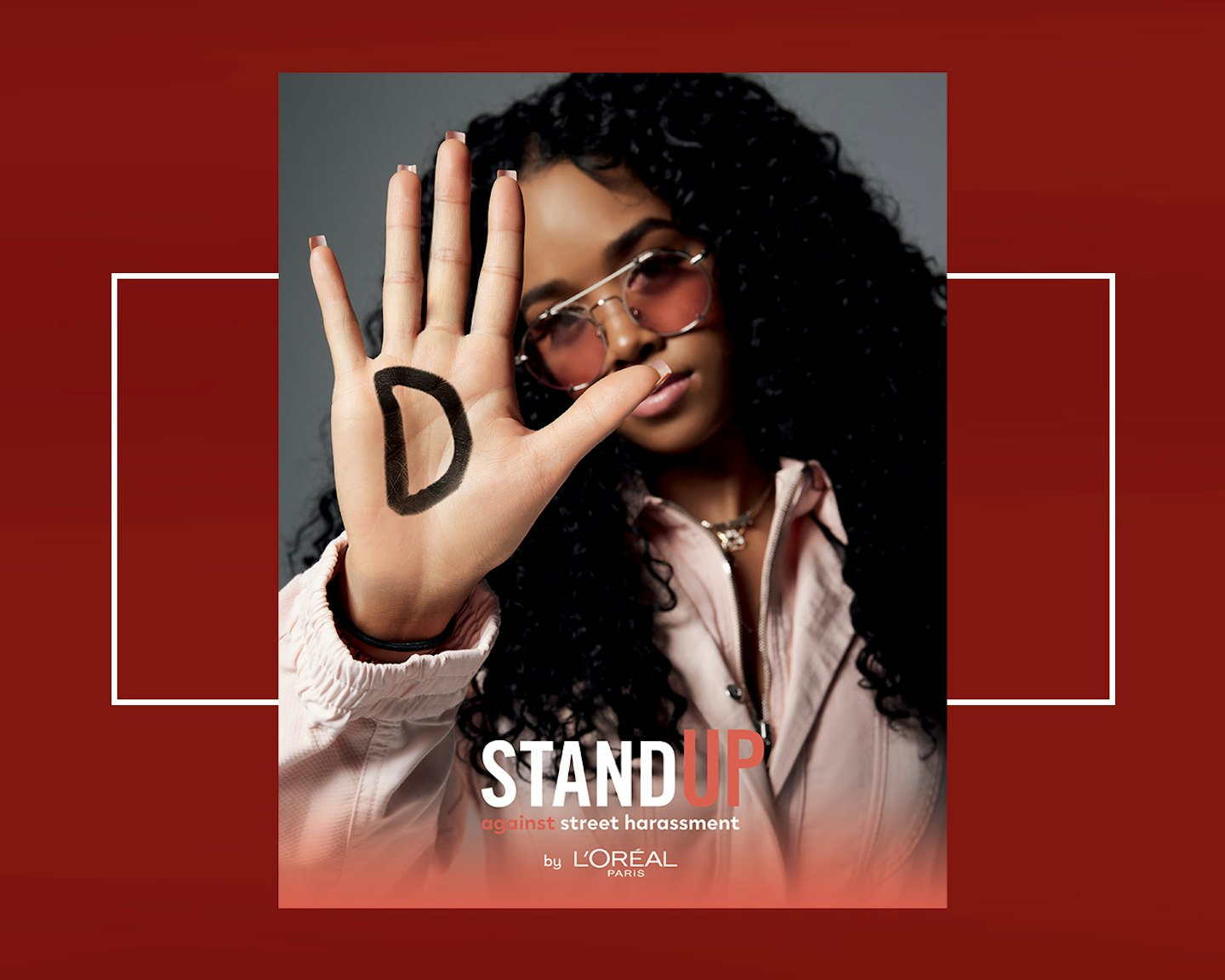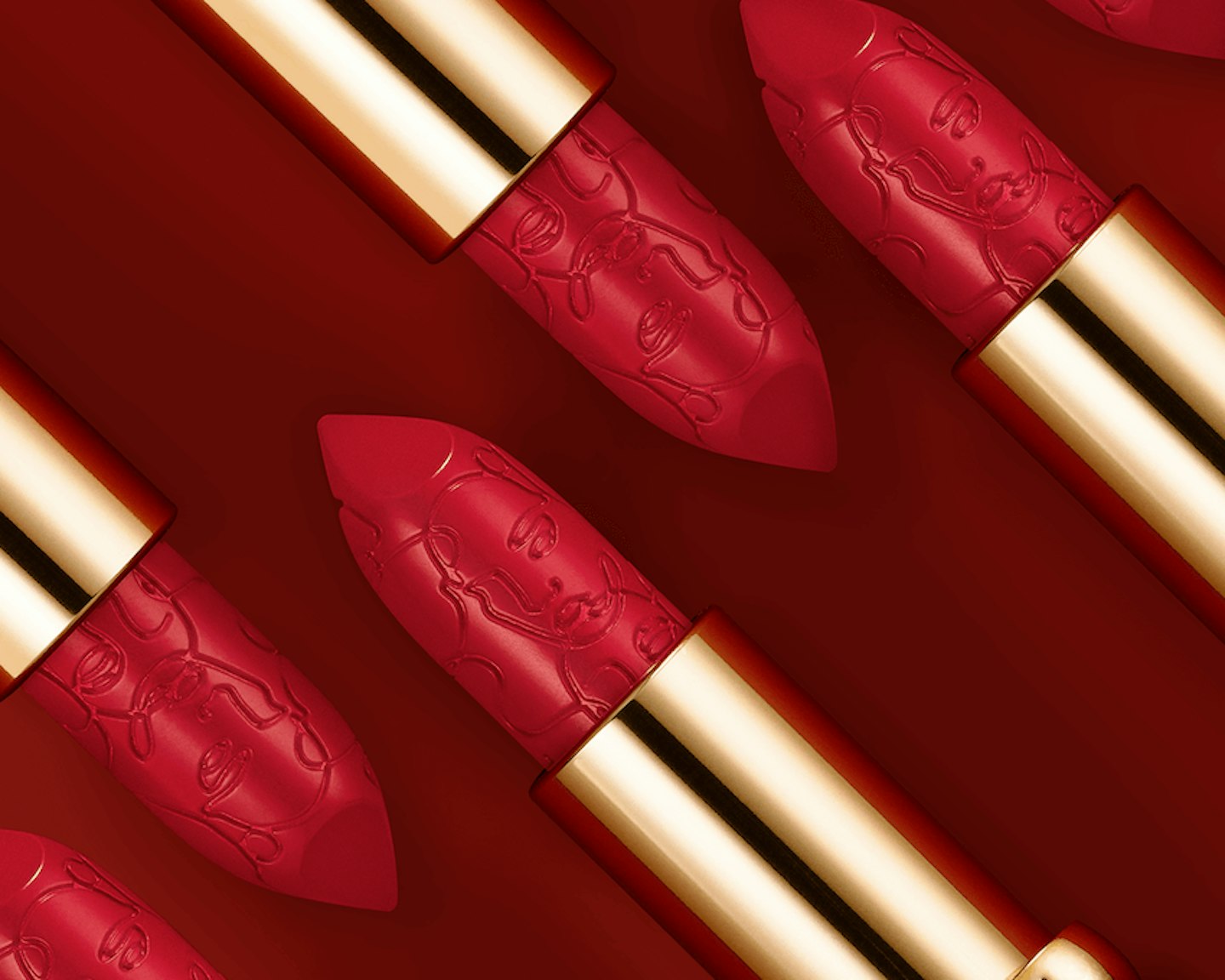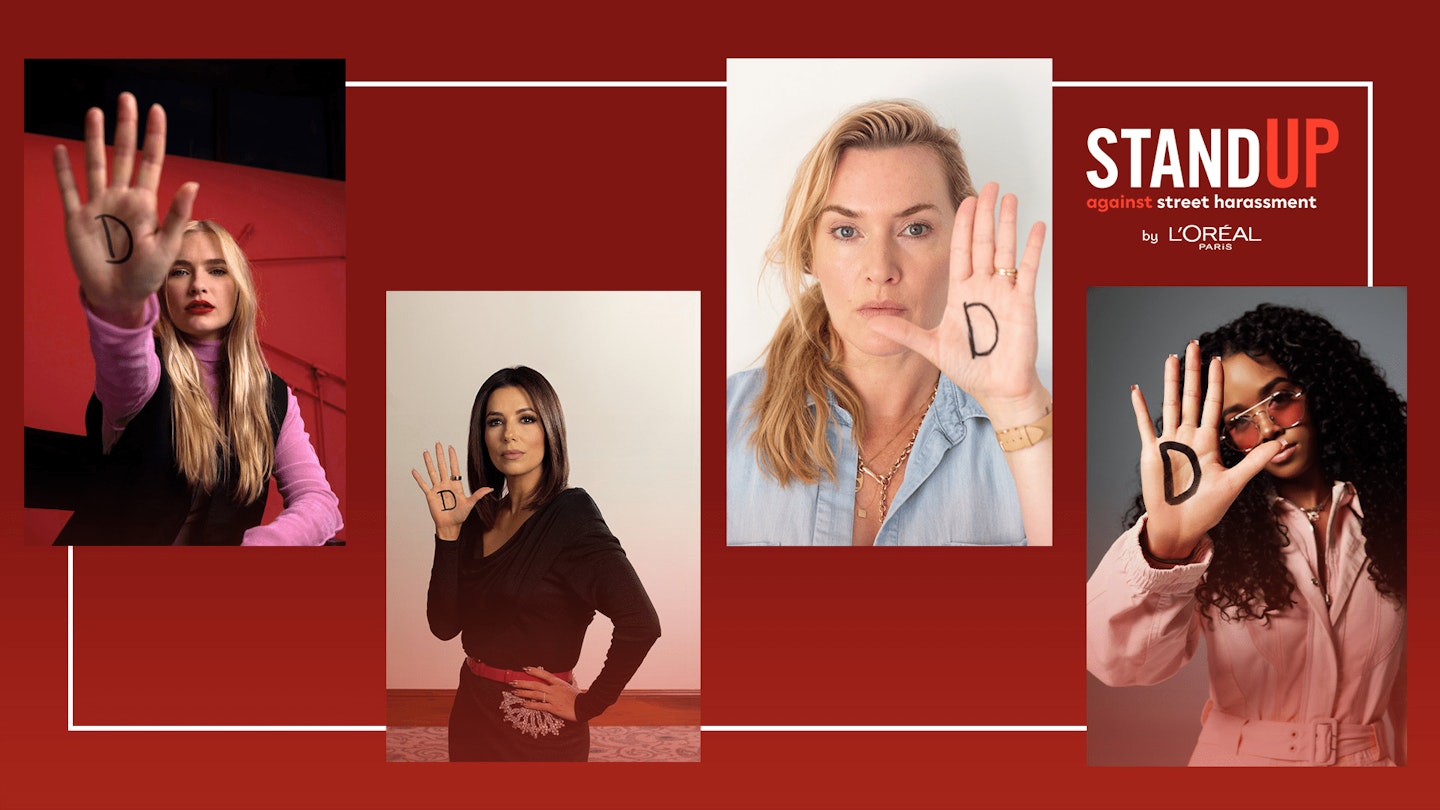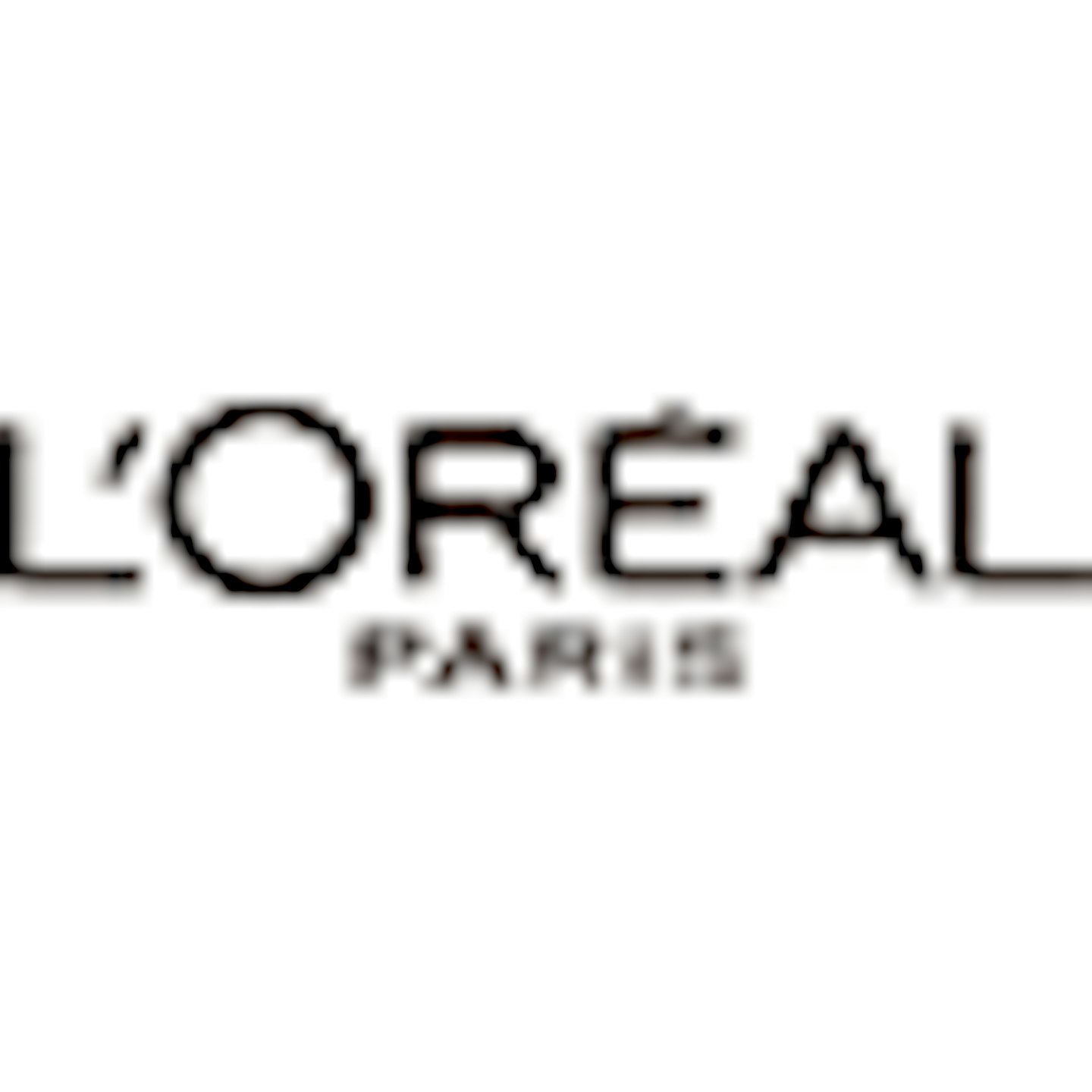Our human instinct is to help one another. We’ll gladly offer directions to those who look lost. If someone leaves their brolly behind, we’ll chase them to give it back. If a person trips or falls we rush to their aid. But when we see street harassment, we can find ourselves feeling unsure, uneasy, or uncertain of how to help. We want to speak up, but sometimes we simply don’t know what to do.
Street harassment is an issue most women encounter, research shows that 80% of women in the UK have reported experiencing harassment in public spaces*. When these incidents happen it can be difficult to know how best to handle the situation. Victims and those around them can feel vulnerable and powerless.
Suggestive comments, sexually explicit touching, inappropriate gestures, being followed. Street harassment comes in many forms and is an experience that devalues us all.
When we feel powerless to intervene, we deepen the trauma of the person being harassed and we let the perpetrator think their behaviour is acceptable. It is not. But, by standing up and standing together we can disrupt the dynamic and become part of the solution.
L’Oréal Paris has partnered with the Suzy Lamplugh Trust to empower women and men everywhere to combat street harassment.

The collaboration sees L’Oréal Paris utilise its global reach to advocate for women and girls’ safety and bring on board the Suzy Lamplugh Trust, the UK's pioneering personal safety charity and leading stalking authority.
Together they are rolling out the Stand Up Against Street Harassment Bystander Intervention Training Program. It aims to help prevent street harassment and make public spaces safe for everyone. The goal is to train 10,000 people per year through online and in-person workshops.
There are two training options - and both are free. The first is the ten-minute online training,this programme offers a proven methodology in the form of the 5 D's. These five simple strategies can help anyone safely intervene if they witness or experience street harassment. For more in-depth coaching, you can also book on to a one-hour live training workshop with the experts at the Suzy Lamplugh Trust.
The inspirational Stand-Up movement has gained global recognition and celebrity endorsement, and over 850,000 people have already completed the Stand-Up training. The sessions can help anyone to become more confident in tackling street and public harassment: by identifying and preventing this kind of behaviour we all benefit.
So, here are the 5 D’s and how can you use them if you see someone being harassed…
DELAY
If you spot a situation, check in with the person being harassed. Acknowledge that what happened wasn’t OK and that it’s not their fault. Show them support.
DELEGATE
Call out what’s going on to someone nearby or ask someone with authority wherever you are: the bus driver, security, a bartender, or even the police.
DOCUMENT
Record the harassment. Always ask the person being harassed what they want to do with the footage and never post it without permission.
DIRECT
Speak up and call the harasser out. Tell them what they’re doing is not OK. Don't get into an argument: just ask them to leave the victim alone or talk to the person being harassed. DIRECT is a last resort to prevent violence. Your safety and their safety come first.
DISTRACT
Indirectly draw attention away from what’s going on. Maybe ask for directions or the time. Get in the way or accidentally drop something. Simply standing by them not saying anything can work just as well.
For more about the 5 D’s, you can view the videos and manifesto online and get a real sense of how the 5 D’s can be useful in dealing with real-life situations.
The more people take up the Stand Up Against Street Harassment Bystander Intervention Training Programme the more impact we can make. Encouraging a group of friends or your company to sign up is a great idea.
So, join the Stand-Up community today. Take the free training here.

In support of the Stand Up Against Street Harassment campaign, L’Oréal Paris has also launched a limited-edition L’Oréal Paris Color Riche Satin Lipstick. The shade ‘Lipstick is not a Yes’, is matched to L’Oréal’s first-ever original red shade. It has been developed to suit all skin tones. And its name highlights that what we wear is not an excuse for abuse. Exclusive to Superdrug, 100% of L’Oréal’s profits will be donated to the Suzy Lamplugh Trust.
References* International survey on “sexual harassment in public spaces” conducted by L’Oréal Paris with IPSOS, with data gathered in 15 countries with over 15,000 participants, January 25th – March 10th, 2021. Interviews were conducted online. The Suzy Lamplugh Trust ‘Driving Out Violence and Aggression’ report, 582 respondents across 17 days in the UK in September 2021. First survey: International survey on “sexual harassment in public spaces” conducted by L’Oréal Paris with IPSOS, with data gathered in 8 countries with over 15,000 participants, April 2019. Interviews were conducted online.

